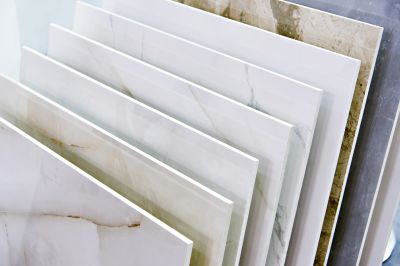Leading Products For Porcelain Tile Installations You Can Trust
Explore essential tools and supplies that ensure a flawless porcelain tile installation with durability and precision.
 Porcelain tile installations require a combination of specialized products to ensure a durable, aesthetically pleasing, and properly functioning surface. From surface preparation to finishing touches, selecting the right tools and materials is essential for achieving professional results. The process begins with surface assessment and preparation, which may involve leveling compounds and primers to create an optimal base for the tiles.
Porcelain tile installations require a combination of specialized products to ensure a durable, aesthetically pleasing, and properly functioning surface. From surface preparation to finishing touches, selecting the right tools and materials is essential for achieving professional results. The process begins with surface assessment and preparation, which may involve leveling compounds and primers to create an optimal base for the tiles.
Top Overall Option
Premium Thin-Set Mortar
A high-quality thin-set mortar designed specifically for porcelain tiles offers excellent adhesion, workability, and flexibility. It helps ensure a secure bond between the tile and substrate, accommodating minor movements and reducing the risk of cracking. Its smooth consistency allows for easy application and clean-up, making it a versatile choice for both professional installers and DIY enthusiasts.
Types of Products For Porcelain Tile Installations
Porcelain Tile Adhesives
Specialized thin-set mortars formulated for porcelain tiles provide strong bonding and flexibility.
Tile Spacers and Leveling Systems
Tools that help maintain consistent grout lines and ensure a flat surface during installation.
Wet Tile Saws and Cutting Tools
Precision cutting devices designed for clean, accurate cuts around edges and obstacles.
Grout Mixes and Grouting Tools
Products for filling joints and tools for applying and smoothing grout for a professional finish.
Tile Sealers and Protectors
Sealing agents that safeguard against stains and moisture, extending the lifespan of the installation.
Surface Preparation Compounds
Primers and leveling compounds that create an ideal base for tile adhesion.
Cleaning and Maintenance Products
Solutions designed for routine cleaning and touch-up to preserve tile appearance.
Backer Boards and Underlayment
Supportive substrates that provide stability and reduce movement beneath the tiles.
Corner and Edge Trim Pieces
Finish trims that provide a clean, professional edge around tiled surfaces.
Mortar and Grout Colorants
Color-matched products to customize the appearance of grout lines.
Rapid-Set Adhesives
Fast-curing adhesives suitable for quick installations or repairs.
Expansion Joints and Sealants
Materials that accommodate movement and prevent cracking in large tiled areas.
Underfloor Heating Mats
Heating solutions that can be integrated beneath porcelain tiles for added comfort.
Vapor Barriers and Moisture Barriers
Protective layers that prevent moisture infiltration in wet or basement installations.
Edge Profiling Tools
Tools for shaping and finishing tile edges for a polished look.
Tile Lifting and Positioning Clamps
Devices that assist in precise placement and adjustment during installation.
Popular Choices
Widely used for their reliable bonding properties and ease of application.
Commonly chosen for maintaining consistent grout lines and achieving flat surfaces.
Popular for their precision cuts and ability to handle tough porcelain tiles.
Preferred for their ease of use and variety of colors to match decor.
Frequently selected to protect grout lines and tile surfaces from staining.
Chosen for creating a stable, even surface before tile installation.
Popular for regular maintenance and keeping tiles looking new.
Commonly used as a sturdy substrate for porcelain tile installations.
Selected for finishing edges and providing a clean, professional look.
Favored for quick setting times in time-sensitive projects.
Popular in large areas to prevent cracking due to movement.
Gaining popularity for adding comfort in residential and commercial spaces.
Often used in bathrooms and basements to prevent moisture issues.
Commonly used for creating finished edges in custom installations.
Helpful for repositioning tiles during installation or repairs.
Once the surface is prepared, the selection of adhesives and grouts becomes crucial. High-quality thin-set mortars are designed specifically for porcelain tiles, offering strong adhesion and flexibility to accommodate slight movements without cracking. Proper spacers and leveling systems help maintain uniform grout lines and ensure a flat, even surface. Cutting tools such as wet saws and tile nippers facilitate precise cuts, especially around corners and irregular shapes.
After installation, sealing products play an important role in protecting the porcelain tiles and grout lines from stains and moisture infiltration. Sealers are available in various formulations suitable for different tile finishes and installation environments. Maintenance products, including cleaning solutions and touch-up kits, help preserve the appearance and longevity of the tiled surface over time. Overall, choosing the right combination of these products can significantly influence the success of a porcelain tile project.
Key Buying Considerations
- Compatibility with porcelain tiles to ensure proper adhesion and sealing.
- Application environment, such as indoor, outdoor, wet, or high-traffic areas.
- Ease of use and tool compatibility for DIY projects versus professional installations.
- Drying and curing times to meet project timelines.
- Flexibility and movement accommodation to prevent cracking.
- Water resistance and moisture barrier properties for bathrooms and outdoor spaces.
- Color options and matching capabilities for grout and sealers.
- Durability and long-term performance based on material quality.
- Compatibility with underfloor heating systems if applicable.
- Ease of cleaning and maintenance requirements.
- Availability of accessories like trims, spacers, and leveling systems.
- Cost-effectiveness considering the overall project scope.
- Brand reputation and product reviews for reliability.
- Storage and shelf life of materials, especially for large projects.
- Environmental conditions during application, such as temperature and humidity.
